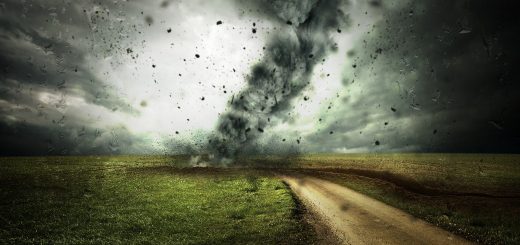Rabbi On a Hot Mississippi Roof

That rabbi being me, a week ago. A good part of my responsibilities at the Simon Wiesenthal Center (which is where I am when not at Yeshiva of Los Angeles or Loyola Law School doing more conventional things, like teaching Torah) focus on building relationships with non-Jewish religious groups which are friendly to Israel and the Jewish people. A group of really terrific people in Mississippi took an early lead in fighting the biased and foolish position of the leadership of the Presbyterian Church (USA), which voted in 2004 to move towards divestment from Israeli companies. The same folks just happened to be spearheading an effective, focused, and moving volunteer relief effort, and I was there to say thank-you in a way they would appreciate.
My friends located neighborhoods whose residents were uninsured or under-insured. FEMA funds, when they would finally come, would not be enough to allow them to rebuild homes that their families had occupied for generations. I use the word “homes” somewhat loosely. It is impossible to describe or comprehend the horror that Katrina visited upon the Gulf Coast. Pictures are entirely inadequate to the job. You only get a sense when you watch mile after mile of devastation near the water, and are then told that the destruction continues unabated for 90 miles! The “houses” that remain – the ones not slated for demolition – are nothing more than outer shells. Floors, ceilings, all walls have been stripped of sheet-rock. Just 2X4’s remain inside. The thinking was that if they could put new roofs on these homes, the residents could return and have shelter of their own before winter really arrives. Once in, they would be motivated to see things through, and rebuild their communities. It seemed to me like a perfectly tailored task for the groups of volunteers (like the group of Hillel students that happened to be there during my visit) that still come to lend a helping hand. My friends there provide the training and skilled supervision, besides vetting the applicants for help.
This has already been too long of an introduction for the single point that I wanted to share with our readers. While there, I made a point of asking everyone I could about the background of the volunteers who came from all over America at their own expense to spend a week or two or longer helping out. Did they come with non-sectarian agencies, or were they religiously based.
The answers, all of the ball-park estimate variety, were consistent. The locals all thought that the vast majority of those who came did so out of religious motivation and conviction. There were, to be sure, sizeable numbers that came with organizations like Volunteers of America. Even among them, they said, many of the volunteers said that their motivation to participate was faith-based.
Atheists and secularists often argue that they can be at least as morally attuned as religious people. That may or may not be true. But the example of long-term volunteer work in the wake of America’s most disruptive disaster shows that at least in this instance, faith-based good works come in for some high marks. There seems indeed to be a difference in behavior between those who heed an inner call to do a good deed, and those who respond to an outer Voice making such activity commanded and expected.




Glad to see Rabbi Aldersteins attitude. I am curious what percentage of Rabbis
and Roshei Yeshiva encourage behavior like this for the benefit of all mankind.
Mycroft –
My guess is it’s not a large enough percentage. Which is why this is doubly admirable. Still there’s no need to contrast faith-based good works with those not faith-based in order (seemingly) to diminish the latter. It’s not a contest.